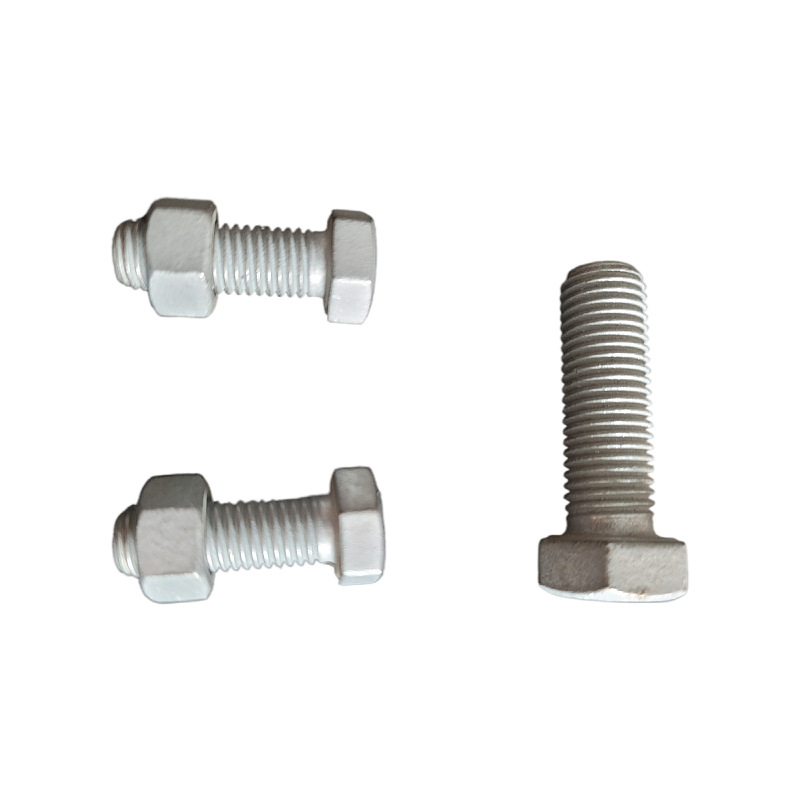

M16 Flat Washer Specifications and Applications for Various Engineering Projects
Oct . 12, 2024 19:00 Back to list
M16 Flat Washer Specifications and Applications for Various Engineering Projects
Understanding the M16 Flat Washer Key Components in Fastening Technology
In the world of mechanical engineering and construction, fasteners constitute an integral component that ensures the structural integrity and functionality of assemblies. One crucial element in this fastener ecosystem is the flat washer, specifically the M16 flat washer. This article will delve into what M16 flat washers are, their significance, applications, and considerations for use.
What is an M16 Flat Washer?
An M16 flat washer is a type of hardware component designed to distribute the load of a threaded fastener, such as a bolt or screw. The M16 designation refers to the metric size of the washer, which fits 16mm diameter bolts, commonly found in numerous engineering and architectural applications. Flat washers are typically made from materials like steel, stainless steel, brass, and sometimes plastic, depending on the intended use and environmental conditions.
The standard design of a flat washer is a thin disc with a hole in the center that allows it to be placed over a bolt or screw. This simple yet effective design provides several benefits that enhance the reliability of fastened connections.
Significance of Flat Washers
1. Load Distribution When a bolt is tightened, it can create concentrated stress on the material being fastened. An M16 flat washer helps to distribute this load over a larger surface area, reducing the chance of material deformation and failure.
2. Preventing Damage Flat washers prevent damage to the surface being fastened. Without a washer, the head of the bolt or nut can embed into softer materials, leading to surface and structural deterioration over time.
3. Vibration Resistance In applications subject to vibration, flat washers can help maintain the tension of the fastened connection. By providing a stable surface, they prevent the fastener from loosening, thereby prolonging the life of the assembly.
4. Corrosion Resistance Certain materials, such as stainless steel flat washers, offer significant resistance to corrosion, making them ideal for outdoor and high-humidity environments. This property enhances the longevity of the entire assembly.
Applications of M16 Flat Washers
m16 flat washer

M16 flat washers are employed in a vast array of industries and applications
. Some of the most common uses include- Automotive Industry They are used to secure components when assembling vehicles, ensuring that parts such as engines and suspensions are securely fastened. - Construction In building infrastructure, M16 flat washers are essential in holding beams, frames, and other structural elements firmly in place. - Manufacturing Machinery and equipment in factories often utilize flat washers in various assemblies to enhance stability and prevent damage during operation.
- Home Improvement For DIY enthusiasts, M16 flat washers are valuable in home construction and repairs where securing fasteners with even load distribution is necessary.
Considerations for Use
When selecting an M16 flat washer, several factors must be taken into account
1. Material Choose a washer made from an appropriate material based on the exposure conditions, such as moisture and temperature.
2. Thickness The thickness of the washer can impact its load-bearing capability. Thicker washers typically handle greater loads but may require more space.
3. Coating In corrosive environments, consider washers that have protective coatings to further enhance their lifespan.
4. Standards Compliance Ensure that the washers meet industry standards for quality and reliability, such as DIN or ISO specifications.
Conclusion
The M16 flat washer may appear understated in the vast realm of fasteners, yet its role is vital. From ensuring structural integrity and preventing surface damage to enhancing safety in mechanical assemblies, flat washers are indispensable components in various applications. Whether in heavy machinery or simple household projects, understanding the importance and functionality of M16 flat washers can optimize your fastening solutions and contribute to the longevity of your assemblies.
Latest news
-
Premium Fasteners Manufacturer | AI-Driven Solutions
NewsAug.01,2025
-
Hot Dip Galvanized Bolts - Hebei Longze | High Strength, Corrosion Resistance
NewsAug.01,2025
-
High-Strength Hot Dip Galvanized Bolts - LongZe | Corrosion Resistance, Custom Sizes
NewsAug.01,2025
-
Best Self Tapping Screws for Drywall - Fast & Secure Installation
NewsJul.31,2025
-
High-Strength Hot Dip Galvanized Bolts-Hebei Longze|Corrosion Resistance&Customization
NewsJul.31,2025
-
Hot Dip Galvanized Bolts-Hebei Longze Metal Products|Corrosion Resistance&High Strength
NewsJul.31,2025

